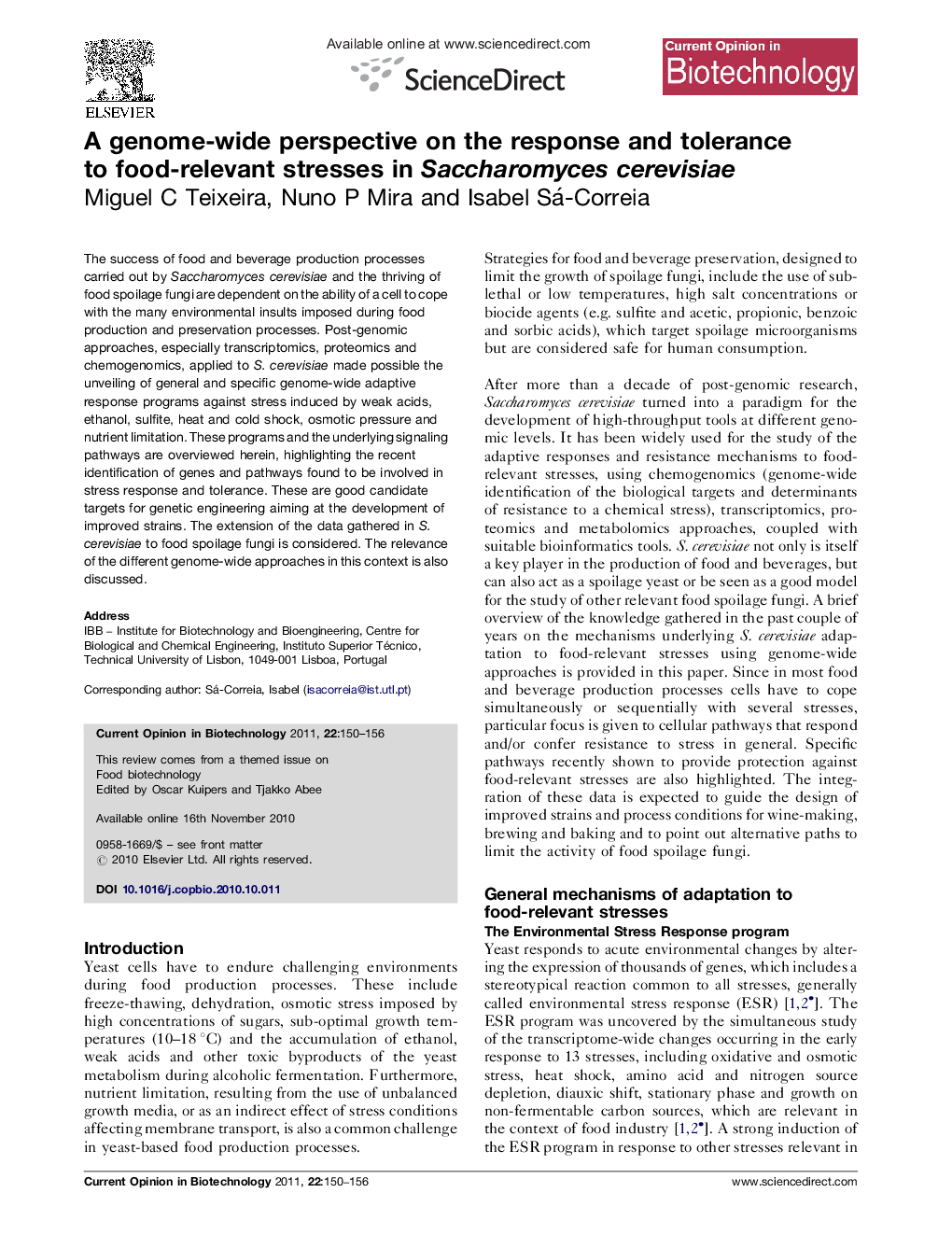| Article ID | Journal | Published Year | Pages | File Type |
|---|---|---|---|---|
| 16051 | Current Opinion in Biotechnology | 2011 | 7 Pages |
The success of food and beverage production processes carried out by Saccharomyces cerevisiae and the thriving of food spoilage fungi are dependent on the ability of a cell to cope with the many environmental insults imposed during food production and preservation processes. Post-genomic approaches, especially transcriptomics, proteomics and chemogenomics, applied to S. cerevisiae made possible the unveiling of general and specific genome-wide adaptive response programs against stress induced by weak acids, ethanol, sulfite, heat and cold shock, osmotic pressure and nutrient limitation. These programs and the underlying signaling pathways are overviewed herein, highlighting the recent identification of genes and pathways found to be involved in stress response and tolerance. These are good candidate targets for genetic engineering aiming at the development of improved strains. The extension of the data gathered in S. cerevisiae to food spoilage fungi is considered. The relevance of the different genome-wide approaches in this context is also discussed.
